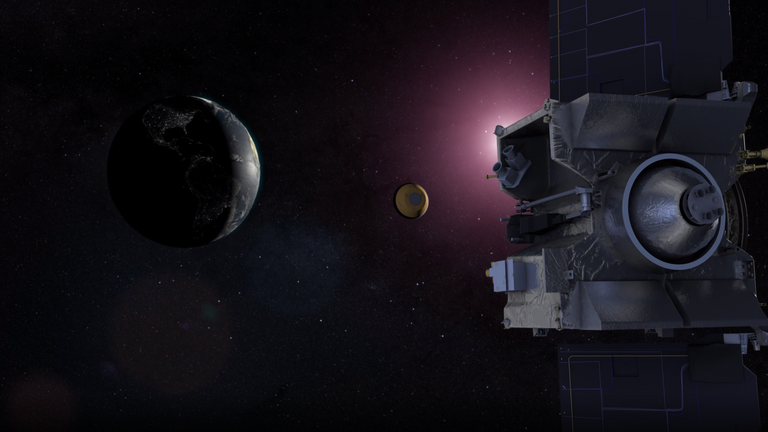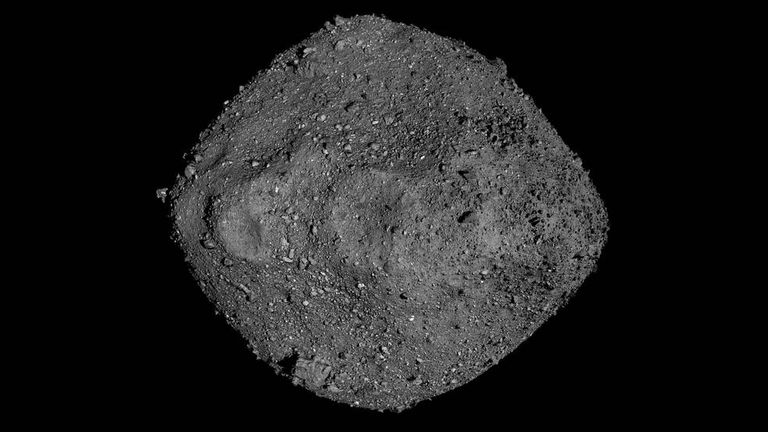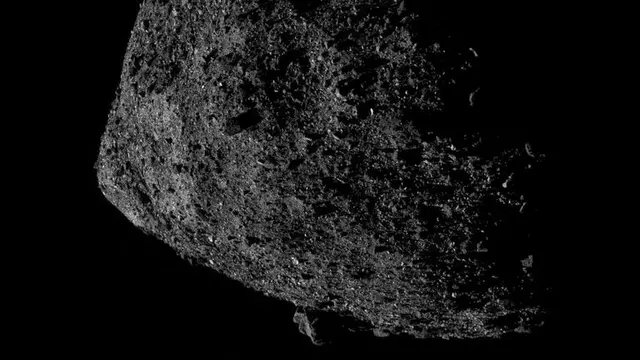The chances of one of the most hazardous asteroids in the solar system hitting Earth are higher than previously thought, NASA has said.
The odds of Bennu striking Earth have risen from one in 2,700 to one in 1,750 over the next 200 years.
NASA's
Osiris-Rex spacecraft has helped scientists gain a better understanding of the space rock's whereabouts for the coming centuries - with 24 September 2182 declared as a particular date when our planet is at risk.

Image:The Osiris-Rex spacecraft is set to return to Earth with a sample from Bennu in September 2023. Pic: NASA
Davide Farnocchia, from NASA's Centre for Near Earth Object Studies, stressed that the chances of Bennu hitting us in the next century are quite low, adding: "We shouldn't be worried about it too much."
Osiris-Rex has been
investigating Bennu since 2018
, and is now heading back to Earth on a long, roundabout loop after collecting samples of rock and dust.
It is expected to deliver samples from the asteroid in 2023.
In 2019, it captured the
closest-ever photograph of Bennu
, which gets closer to Earth every six years and is regarded as one of the two most hazardous known asteroids in the solar system.
The spacecraft collected enough data over two-and-a-half years to help scientists predict the orbital path of the asteroid.

Image:This mosaic of Bennu was created using observations made by the Osiris-Rex spacecraft. Pic: NASA/Goddard/University of Arizona
In 2135, Bennu will make a close approach with Earth, but scientists believe it will not pose a danger to our planet at that time.
Scientists must understand Bennu's exact trajectory during that encounter in order to predict how Earth's gravity will alter its path around the sun - and affect the risk of a future impact.
NASA's findings - published in the journal Icarus - should also help in charting the course of other asteroids and give Earth a better fighting chance if and when another hazardous space rock heads our way.
 简体中文
简体中文

